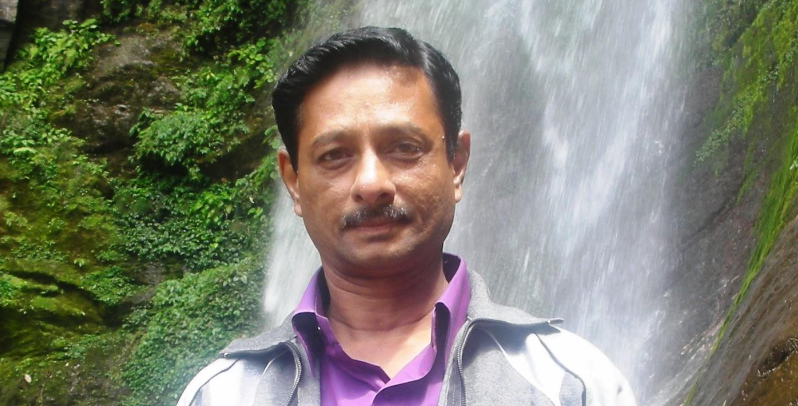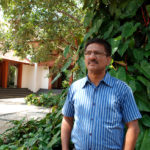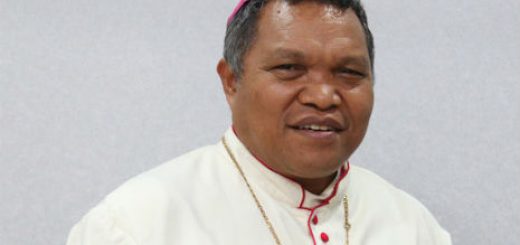CCV’s ISAAC REPLIES TO QUERIES OF ELVIZ VAZ ON PPC & PFC

Elvis Vaz, Thaltez Parish, Admedabad
Dear Elviz Vaz and also parishioners of Thaltej Parish Ahmedabad Gujarat,
This has reference to your following queries dated 20th June 2016 to Church Citizens’ Voice:
1. Is the Parish Council and the Finance committee of the Parish still just consultative bodies with the Parish Priest being the Final decision maker? Specially since we have our Pope Francis advocating greater transparency in Church accounting.
2. Does the Parish Accounts need to be published or need to be given to Parish members for greater transparency of the Parish accounts?
We ask this as we believe in a thriving Parish.
We would be grateful if you could provide any document to or direct us some place regarding the above 2 points.
As a member of the CCV Editorial Team, I have been delegated the onerous task of answering your queries.
First, Parish Priests establish Parish Pastoral Councils because they seek practical advice on pastoral matters. Parishioners want to serve on Councils because they want to advise the Parish Priest wisely and prudently on pastoral matters. They believe that God’s Spirit which gives them wisdom and prudence, is present in their community. Parishioners must know that Parish Pastoral Council (PPCs) and Parish Finance Committee (PFCs) are specialised roles. It requires people with specialised skills.
Council members are selected based on any or a combination of the following three models:
1. Shared Wisdom Model
2. Election Committee Model – Parish election committee facilitates election of council members.
3. Combined Model – Combines open parish meetings and discernment by the Election Committee.
All the procedures are detailed in the document Parish Pastoral Councils, Diocese of Bismarck, 2009 Guidelines (30 pages), which has been emailed to you.
Regarding your question whether Parish Pastoral Council (PPCs) and Parish Finance Committee (PFCs) are consultative bodies, the answer is in a way they are (as per the Canon Law). It is called Consultative because the members are expected to work as a team in the interest of the parish. The select band of wise men & women deliberate on pastoral proposals and give their own considered views, guided but not goaded by the Parish Priest. One very important aspects of the Consultative Process is listening to dissenting views. Normally, most members covertly or overtly try to be in the good books of the Parish Priest (for future extension of term or otherwise). Therefore they expect others to toe the dotted lines and say "Yes" or "No" on expected lines. This is not a healthy practice to bring sustainable development of a parish – spiritual and worldly. Differing opinions must be encouraged and points there from must be used for corrective measures. Canon 536.2 states that the “pastoral council possesses a consultative vote only.” This does not mean that the parish priest simply listens to the council and then does as he pleases. If a parish priest were to do so it would go against the spirit of Vatican II, especially the document on the Church. Hence ‘consultative only’ does not mean ‘merely advisory.’ This is important because otherwise, many intelligent and talented lay persons would be lost to the parish council.
At the same by virtue of the members being "Co-responsible (Co-partners) and no more "Collaborators" of the Church (Please read Pope Benedict XVI's message below), PPCs and PFCs are not entirely consultative (Advisory) bodies. For in that case, the Parish Priest will have unbridled powers to override even the best of proposals. This will reduce the PPC and PFC members into mere figureheads. It will be also an insult to the members who are picked based on their wisdom, prudence integrity, competence in various fields or pre-eminence. This means when members have deliberated on identifying and prioritising pastoral issues, and have come to certain conclusions after due consultation, they have spent their valuable time and effort and therefore their recommendations cannot be set aside outright without the parish priest giving valid written reasons which must be recorded as part of the Minutes. Many management consultancy firms give voluminous reports recommending various reforms for the improvement of their clients' operation. But the client may flip through the report and may not implement the consultant's recommendations though it pays hefty fees for the work. Reputed consultants like McKinsey & Company take it as an insult to their professional expertise. When they submit their proposals, they put two key questions (1) How honourable the client is (2) Whether the client will implement their recommendations. If the answer to question (2) is no or wishy-washy, McKinsey will not take up the assignment, however high the fees. PPC and PFC members too should adopt similar approach and should not meet the parish priest just for consuming cups of tea and doing tons of paper work, without the parish priest valuing their output and implementing their recommendations.
In this context, the following Message of Pope Benedict XVI to Catholic Action Forum should be read very carefully, where he says : Laity "should be considered not as 'collaborators' with the clergy, but as persons truly 'co-responsible' for the being and activity of the Church":
CASTEL GANDOLFO, Italy, AUG. 24, 2012 (Zenit.org).- Here is a translation of the message Benedict XVI sent to the 6th Assembly of the International Catholic Action Forum. The message, dated Aug. 10, was released by the Vatican on Thursday. The five-day assembly is under way through Sunday.
* * *
To the Venerable Brother
Msgr. Domenico Sigalini
General Assistant of the International Catholic Action Forum
On the occasion of the Sixth Ordinary Assembly of the International Catholic Action Forum, I wish to extend my cordial greetings to you, and to all those who are participating in this meaningful gathering, especially the Coordinator of the Secretariat, Emilio Inzaurraga, the National Presidents and Spiritual Assistants. A special thought goes to the Bishop of Iasi, Monsignor Petru Gherghel and to his diocese, which is hosting this ecclesial event during which you are being called upon to reflect on “ecclesial and social co-responsibility”. It is highly significant and timely subject for the laity on the eve of the approaching Year of Faith and Ordinary Assembly of the Synod of Bishops on the New Evangelization.
Co-responsibility requires a change in mentality, particularly with regard to the role of the laity in the Church, who should be considered not as “collaborators” with the clergy, but as persons truly “co-responsible” for the being and activity of the Church. It is important, therefore, that a mature and committed laity be united, who are able to make their own specific contribution to the Church’s mission, in accordance with the ministries and tasks each one has in the life of the Church, and always in cordial communion with the bishops.
In this regard, the Dogmatic Constitution Lumen Gentium describes the nature of the relationships between laity and Pastors with the adjective “familiar”: “A great many wonderful things are to be hoped for from this familiar dialogue between the laity and their spiritual leaders: in the laity a strengthened sense of personal responsibility; a renewed enthusiasm; a more ready application of their talents to the projects of their spiritual leaders. The latter, on the other hand, aided by the experience of the laity, can more clearly and more incisively come to decisions regarding both spiritual and temporal matters. In this way, the whole Church, strengthened by each one of its members, may more effectively fulfill its mission for the life of the world” (n. 37).
Dear friends, it is important to deepen and to live out this spirit of profound communion in the Church, which characterized the early Christian community, as the book of the Acts of the Apostles attests: “Now the company of those who believed were of one heart and soul” (4:32). Feel the commitment to work for the Church’s mission to be your own: through prayer, through study, through active participation in ecclesial life, through an attentive and positive gaze at the world, in the continual search for the signs of the times. Never tire of becoming more and more refined, through a serious and daily commitment to formation, through the aspects of your particular vocation as lay faithful, who are called to be courageous and credible witnesses in every sphere of society, so that the Gospel might be the light that brings hope in difficult situations, in troubles and in the darkness that men today so often find along the path of life.
To guide others to an encounter with Christ by announcing his message of salvation with language and ways understandable in our own day marked by rapidly transforming social and cultural advances, is the great challenge of the new evangelization. I encourage you to continue generously in your service to the Church, by fully living out your charism, whose fundamental feature is that of adopting the apostolic goal of the Church as a whole, in a fruitful balance between the universal and local Church, and in a spirit of intimate union with the Successor of Peter and of active co-responsibility with one’s own Pastors (cf. Vatican II decree on the lay apostolate Apostolicam actuorsitatem, 20). At this stage in history, work in the light of the Church’s social teaching to become a laboratory of “globalization of solidarity and charity”, in order to grow with the entire Church in the co-responsibility of offering a future of hope to humanity, by having the courage to make even demanding proposals.
May your lives be “transparent”; may they be guided by the Gospel and enlightened by an encounter with Christ, whom you love and follow without fear. Adopt and share the pastoral decisions of the dioceses and parishes, by promoting occasions to meet and sincere collaboration with the other elements of the ecclesial community, by building relationships of esteem and communion with priests, for the sake of a living, ministerial and missionary community. Cultivate authentic personal relationships with everyone, beginning with families, and offer your availability to participate at all levels of social, cultural and political life, by always setting your sights on the common good.
With these brief thoughts, while I assure you of my affectionate remembrance of you, your families and your associations in prayer, from my heart I send to all the participants in the Assembly the Apostolic Blessing, which I willingly extend to all whom you meet in your daily apostolate.
From Castel Gandolfo, 10 August 2012
Benedictus PP. XVI
Please note Pope Benedict has greeted members of the Laity as "Co-responsible" and not as "Collaborators" a term used so long for the Laity which means just doing the bidding of the clergy. Co-responsible means "Co-partners" which means equal stake in church matters, both spiritual and temporal goods of the parish. The Pope goes on to say : "Cultivate authentic personal relationships with everyone, beginning with families, and offer your availability to participate at all levels of social, cultural and political life, by always setting your sights on the common good." So COMMON GOOD is what PPC and PFC members should focus on having the courage to make even demanding proposals.
On getting your email from CCV Editor-in-Chief Dr James Kottoor, I forwarded your mail to a priest friend of mine asking his views on the matter. This is what Fr Joe wrote:
From: Joe Cdesouza
Sent: Wednesday, June 22, 2016 2:58 PM
To: isaac gomes
Subject: Re: Enquiry on PPC and PFC from Gujarat
There is No Blueprint as to what the Parish Pastoral Council (PPC) and Parish Finance Committee (PFC) should do – but according to Pope Francis, the PPC and the PFC ought to have greater transparency in order to be more participatory in running the parish. This is the broad outline. I shall try in my humble way to be more exact. You must make your own Blueprint for your own parish in consultation with all concerned, including the PP of course.
Finally, it all comes down to proper accounting. a thorough Database of the entire parish is first to be made – who are the rich and who are the poor, who are the deserving and what projects are to be supported or taken up.
Incomes to be declared: Pastoral Support (some suggest 10% of all of one's income), Public Collections at various functions of the parish (liturgical and otherwise), Stipends obtained for various people of the parish. Stipends and Money received from Ministries (like administering the Sacraments, etc. which the priests receive are to be declared, if the Parish pays the Priest his Honorarium for the month.
Expenses to be declared: Running of the Church/Parish (including salary of the Sacristan and upkeep of the Church building, etc. etc.), Distribution of Charities (to the poor and needy after surveys are conducted by the various cells concerned), Distribution of Stipends and Financial Aid to those on our lists, etc. etc.
Although there exists basic trust, better transparency will certainly help for better participation in administration of all matters of the parish (not only financial, but also in Formation: Psychological, Social and Spiritual etc).
joe s.j.
Regarding your search for reference documents you may refer to the document Parish Pastoral Councils, Diocese of Bismarck, 2009 Guidelines (30 pages), which will be emailed to you. You may find more reference material at Ahmedabad – Zip 380 009 Pauline Book and Media Centre, Showroom No. G-4, Campus Crnr, St Xavier's Cross Rd, Navrangpura 079-26563701 ahmedabadbc@paulineindia.org
You are correct in saying that our Pope Francis is advocating greater transparency in Church accounting. But a close look at the goings- on in Indian Church, where CBCI is the Apex Body, it appears that all his shouting from the rooftop on transparency, accountability, checks and balances is falling on deaf ears! For our 180+ Bishops except for issuing circulars on the formation of PPCs and PFCs, have not followed up on their implementation in all the parishes under their respective jurisdiction. Even today CBCI has no statistics in the public domain on how many parishes in India have instituted especially PFCs which are non-existent in most parishes.
In this context I give below our Pope’s clear message where he says Parish Priests are obliged to form Parish Finance Committees.
Pope Francis' observation during a Question & Answer session at a meeting at Vatican's Paul VI Hall with International Union of Superiors General (UISG) for women on 12th May 2016,
After answering the question on "For a better integration of women in the life of the Church", and observing that “the feminine genius is necessary in all expressions of the life of the Church and of society”, the Pope said “ The other danger, a very strong temptation I have spoken about several times, is clericalism. And this is very strong. Let us consider that today more than 60 per cent of parishes – of dioceses I don’t know, but marginally fewer – do not have a council for economic affairs or a pastoral council. What does this mean? It means that the parish or diocese is led with a clerical spirit, by the priest alone, and that it does not implement the synodality in the parish, in the diocese, which is not a novelty under this Pope. No! It is a matter of canon law: the parish priest is obliged to have a council of, for and with laymen, laywomen and women religious for pastoral ministry and for economic affairs. And they do not do this. This is the danger of clericalism in the Church today. We must go ahead and remove this danger, because the priest is a servant of the community, the bishop is a servant of the community, but he is not the head of a firm. No! This is important. In Latin America, for example, clericalism is very strong and pronounced. Laypeople do not know what to do, if they do not ask the priest. It is very strong. And for this reason an awareness of the role of the laity has been very delayed. It is saved in part only through popular piety, as the protagonist of this is the people, and the people have done things as they come to them, and priests in this regard have not been very interested; some have not seen this phenomenon of popular piety in a positive light. But clericalism is a negative attitude. And it takes complicity: it is something that is done by two parties, just as it takes two to dance the tango. … That is: the priest seeks to clericalise the layman, the laywoman, the man or woman religious, and the layperson asks to be clericalised, because it is easier that way. And this is curious. In Buenos Aires, I had this experience three or four times: a good priest came to me and said, “I have a very good layperson in my parish: he does this and that, he knows how to organise things, he gets things done. … Shall we make him a deacon?” Or rather: shall we “clericalise” him? “No! Let him remain a layperson. Don’t make him a deacon”. This is important. It often happens to you that clericalism obstructs the correct development of something.
I Hope I have answered your queries. You may hear further from Dr James Kottoor or some other experts on this matter.
Isaac Gomes

















Shri Isaac Gomes deserves applause for his effort to answer Shri Elvis with his whole heart. I feel proud of being in so great a team of committed reformers. As far as there are wide gulfs of differences between what Jesus taught and what the clericks think, there is always a space for reform. If our Church has fallen in so great a pit of power and pride, the laity is responsible. It is the laity who charges them, knowingly or unknowingly.